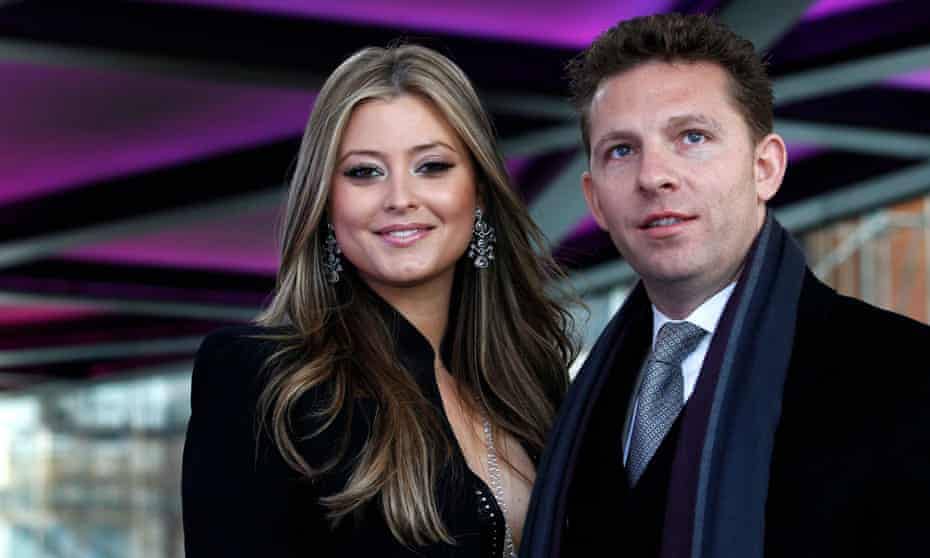A claim for alleged fraudulent misrepresentation against the social networking company Aaqua and its CEO, Robert Bonnier, is being pursued by the Tory donor’s company, Candy Ventures Sarl (CVS), Entrepreneurng report.
As the chief executive and founder of the online company directory Scoot, which peaked at a valuation of more than £2 billion but was ultimately acquired for £5 million, Bonnier was once regarded as one of the City’s most promising young entrepreneurs.
Bonnier, who in 2004 received a then-record fine for deceiving the stock market, is being sued by CVS, who claims the corporation was persuaded to invest in Aaqua by Bonnier’s claims that Apple and LVMH were also planning to invest their own money in the business. In exchange for shares issued by Aaqua itself, CVS invested in Aaqua by transferring the shares Candy had in Audioboom to Aaqua.
Candy, who is married to Holly Valance, a former Neighbours actor, claimed he had reported Bonnier for the allegations to the Financial Conduct Authority (FCA), the Serious Fraud Office (SFO), and the FBI. Bonnier denies the claims. A counter-restitution claim has been made by the Dutchman after wide freezing orders were improperly issued.
However, they deny that the orders were to blame for the losses suffered or that they were as significant as claimed. Instead, CVS’s attorneys apologized for the “misleading information” provided when obtaining the freezing orders and acknowledged that they were “wrongly granted.”
Following CVS’s lawyers’ disclosure that the company owned £13.8 million worth of Audioboom shares that may be sold if the defendants were found to have incurred unjust losses as a result of the freezing orders, the court issued the orders. Nevertheless, it was found that the shares could not be freely sold because they had previously been pledged as security to the Bank of Singapore for a loan on real estate.
Candy, who made an unsuccessful offer for the Chelsea football club last year, refinanced the penthouse he co-developed with his brother Christian in One Hyde Park, which he and his brother, Christian, created and will present to the Bank of Singapore in 2020. When he paid himself £160 million for the penthouse, it was the most expensive mansion in all of Britain.
Candy Ventures proposed to provide a £10 million bank guarantee as “fortification” to sustain the freezing orders once it became known that the shares had been pledged elsewhere.
The deadline was thrice extended when it failed to give the guarantee. The second time, the judge ordered Candy to personally pay £1.5 million to be held by the court’s orders. Five weeks after they were initially obtained, the freezing orders expired because he failed to comply.
Stephen Robins KC, representing Aaqua and Bonnier in court, reportedly told the high court last year that In response, Candy Ventures’ Alec Haydon KC claimed that the amount attributed to Aaqua’s losses had been calculated on a “spurious basis” and that it had been decided commercially not to offer the guarantee because, according to the defendants’ information, there were “no assets effectively to freeze.”
Robins testified in court that CVS was reported to have between €400 and €500 million in assets at the hearing where the freeze was granted, but that according to data provided by Candy himself, the actual amount was less than €200 million and that the company’s balancing sheet showed “staggering liabilities.”
The freezing orders, according to CVS, were approved “based on the incontrovertible evidence of Mr. Bonnier’s lies, dishonesty, and dealings with Audioboom shares,” the company said in a statement.
When it became clear that there were no assets to freeze, rendering the freezing order useless, Candy Ventures Sarl made the commercial decision to forego posting additional security and to remove the [freezing order]. The judge who accepted the position received a thorough explanation of the choice.
The further claims made by Mr. Bonnier that Candy Ventures Sarl understated the worth of its assets to obtain the [freezing order] are wholly untrue and were not accepted by the judge,” the additional allegations said.
They served only to divert the court’s focus away from Mr. Bonnier’s alleged involvement in a significant amount of investor fraud, to which he has not yet responded to.
The well-supported allegations of fraudulent misrepresentation, investor fraud, and price-rigging of Audioboom shares by Mr. Bonnier by Candy Ventures Sarl are still in effect. Currently, Mr. Bonnier has been reported to the FCA, SFO, and FBI, as well as other authorities from other jurisdictions.
CVS was a skilled investor who conducted due diligence and negotiated representations and warranties,” Joel Hogarth of Eliot & Luther, Bonnier’s advisor, said. They are making vague allegations of “fraud” rather than a violation of the agreements they signed.
Conclusion
After rejecting a genuine offer to purchase their shares for more than twice their initial investment, CVS actively pursued a [global freezing order], which was obtained based on false information and later acknowledged to have been improperly granted by CVS. Aqua categorically denies any claims made against it and will diligently pursue its right to compensation for the harm done.
Source: The Guardian











